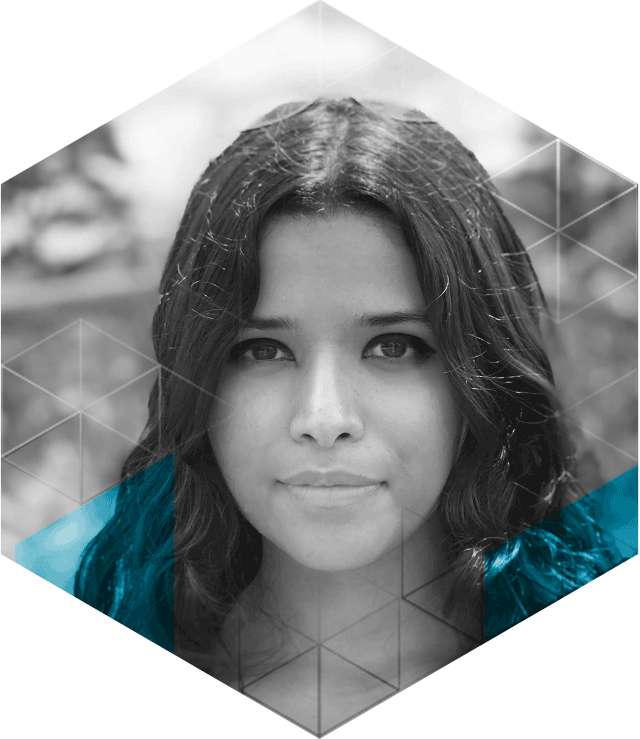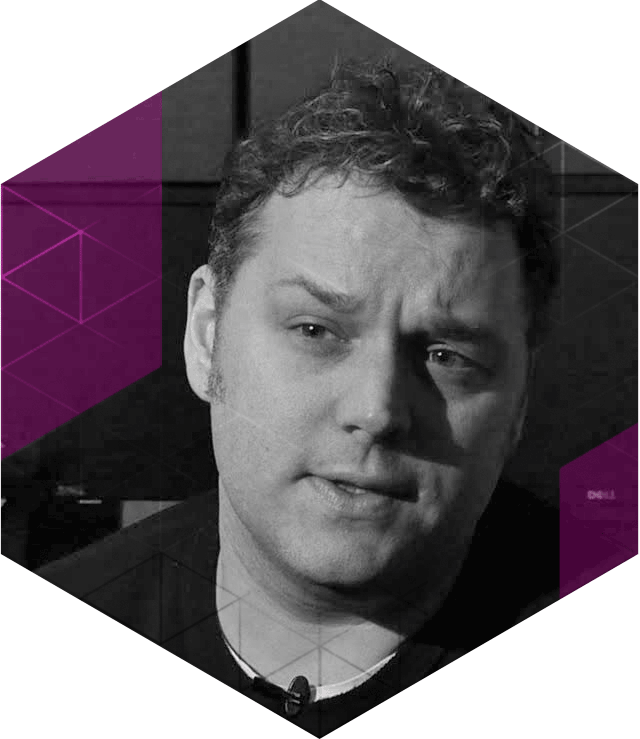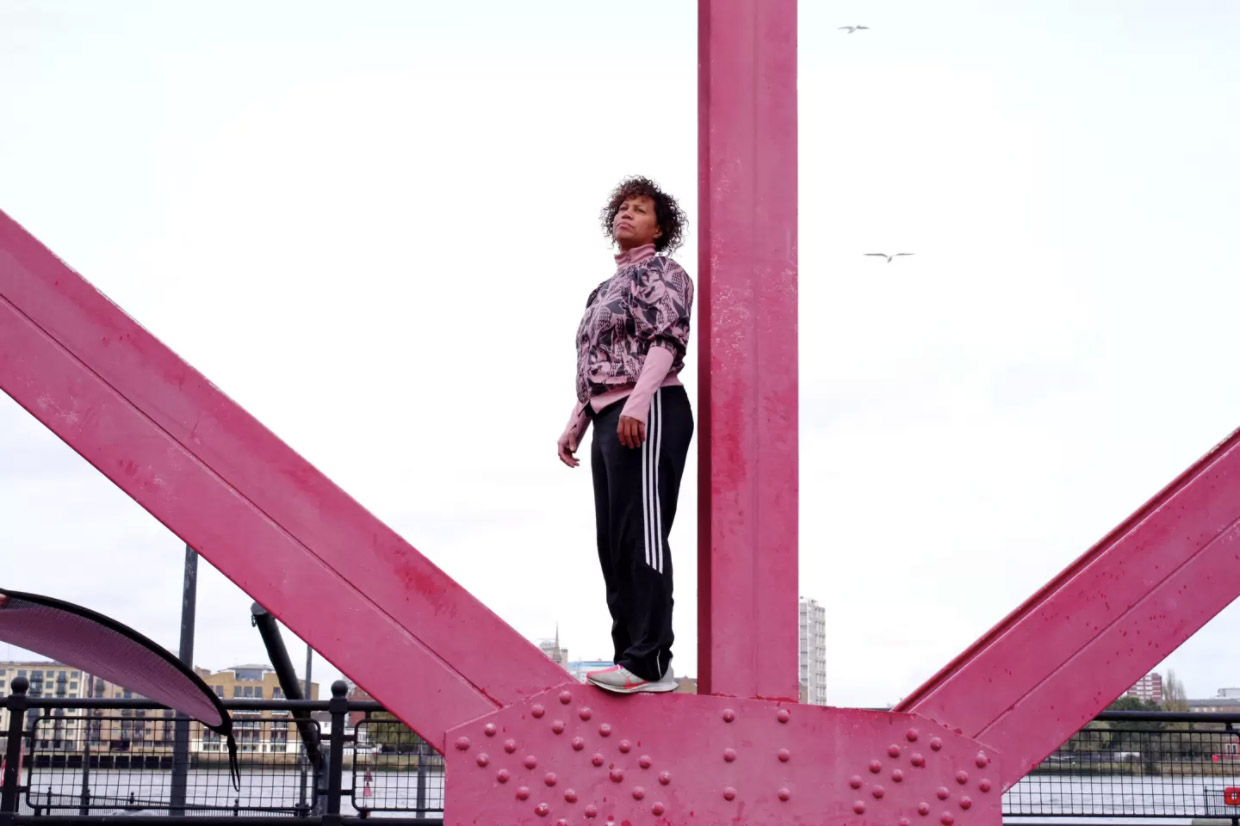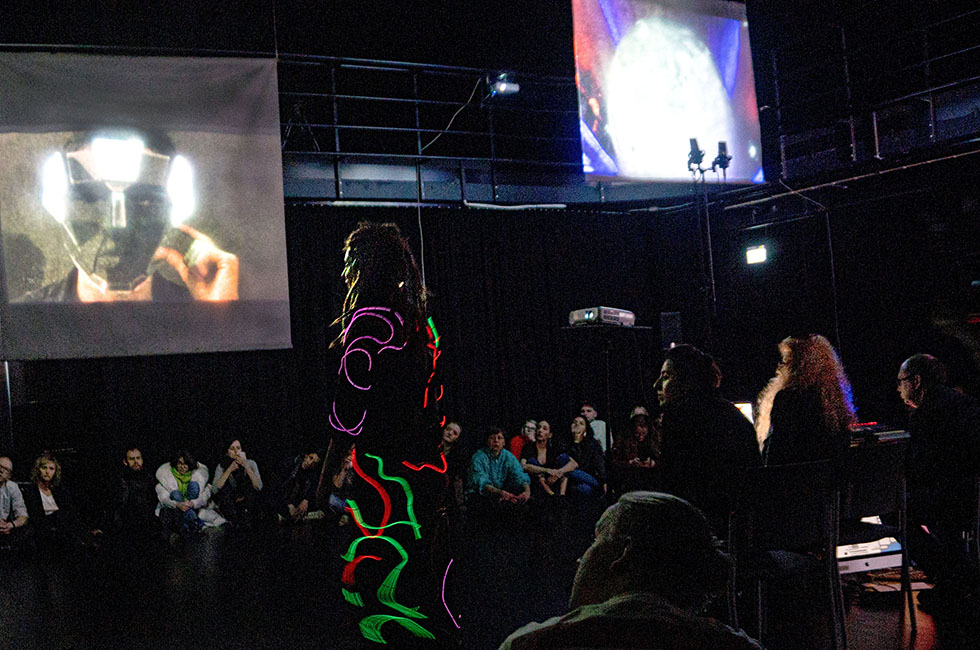Charting a Path in the New Normal
Dear Friends: We hope you and yours are staying safe and healthy as we all face and adjust to the new realities of life.
Many of us in arts communities are dealing with canceled and postponed events, exhibitions, conferences - work that constitutes much of our livelihoods. We have compiled a selection of resources for artists below, which we hope you may find useful.
In response to COVID-19, Thoughtworks Arts has moved most of its operations entirely online. This includes a new, virtual Hardware Hack Lab in NYC, as well as our upcoming residencies.
Synthetic Media Residency Awarded to Nouf Aljowaysir and James Coupe
We are delighted to welcome two pioneering artists for our Synthetic Media residency, to take place over the summer of 2020. Due to COVID-19, we are arranging for them to take place fully online, with the artists participating from their respective homes and studios.

Nouf Aljowaysir is a Saudi-born, New York-based creative technologist and interactive experience designer, as well as the lead researcher at Havas New York, where her focus is on creating AI prototypes for tools and design. Nouf’s work explores the role of tech in culture and personal space, and looks at how technological advances can become a means of domination, control, and exploitation.
Her work has been shown in galleries and festivals in the US and Europe, including the International Documentary Festival Amsterdam (IDFA), SXSW in 2019, and was selected for a Sundance New Frontier Story Lab Residency.

James Coupe is a British-born, Seattle-based artist investigating facial recognition software and computer algorithms in relation to popular media and surveillance.
He has been making work for over twenty years, exhibiting at the International Center of Photography (ICP) in New York City, the Henry Art Gallery in Seattle, the Museum of Contemporary Canadian Art in Toronto, and has received an Honorable Mention for interactive art at the Prix Ars Electronica.
Thoughtworks and Karen Palmer Featured in Wired Magazine
Artist Karen Palmer, whose work challenges the societal implications of A.I. by using immersive film installations was featured in the March edition of WIRED UK, both online and in print.

The article highlights Karen’s 2017 A.I. residency at Thoughtworks Arts where she worked with Thoughtworks employees to research algorithms and datasets. Based on this research, the team created EmoPy, an open-source Facial Expression Recognition (FER) toolkit to help democratize access to the technology.
The WIRED feature also goes into depth about Karen’s latest work Perception iO, an exhibit sponsored by the Cooper Hewitt Smithsonian Design Museum in New York. Karen worked with Thoughtworks to develop an immersive film that exposes how our hidden biases can be explored through simulation of policing scenarios.
Perception iO became an integral installation at the Coopper Hewitt Museum’s exhibition Face Values. The article relays that Karen is using it as a testing ground for her next film which will emphasize how A.I. is a human rights issue.
AIBO Premieres at the Estonian Academy of Music
On February 22nd, Ellen Pearlman’s new emotionally intelligent artificially intelligent brainwave opera AIBO had its world premiere at the Estonian Academy of Music’s state of the art Black Box Theater in Tallinn.

The opera investigates Artificial Intelligence and its effects on both fascism and love. In the performance, human emotions are displayed on a bodysuit of light, and synthetic emotions display as red, yellow or green hues in the performance space.
Viewers take part in an interaction between Eva, played by actor Sniedze Strauta, and AIBO, a ‘sicko’ AI. Eva wears an Emotiv EEG brainwave headset connected to a bodysuit of light designed by smart textiles designer Dila Demir.
AIBO’s response is generated via a custom built GPT-2 AI, created by Ellen and programmed by Thoughtworks developers Jonathan Heng, Wasawat Somno and Andrew Zhou, with help from technical director Hans Gunter Lock.
The opera explores two questions: “Can an AI be fascist? And can an AI have epigenetic, or inherited traumatic memory? These questions raise issues imagining a potential future where humans and machines may one day merge consciousness.”
In 2019, Pearlman received the European Union’s prestigious Vertigo Starts Residency Laureate Award to develop AIBO.
Our blog post goes into greater detail about AIBO’s development and its debut.
COVID-19 Support Resources
We’ve compiled a list of resources and virtual environments for those looking to collaborate, share, and disturb the pangs of isolation. May these connections buoy us during this storm.
- The Artist Relief Project is an initiative to help artists, musicians, and performers impacted by the COVID-19 crisis.
- The NYFA “Anonymous Was A Woman” Emergency Relief Grant program is distributing up to $2,500 to women-identifying visual artists over the age of 40 who have been impacted by COVID-19.
- CERF-Emergency Assistance is for artists who’ve experienced a recent career threatening emergency, includes grants and/or brokered assistance.
- Kinkade Family Foundation Emergency Grant for Curators will provide one-time grants of up to $5,000 to curators experiencing unexpected emergencies related to the COVID-19 pandemic.
- Mayer Foundation Economic Relief Grants are designed to provide relief grants for any individual in the New York City area.
Here’s a list of spaces where artists and technologists are coming together to create community virtually.
- Hardware Hack Lab NYC is running virtual events every Wednesday evening for people wanting to explore new technology in a friendly environment, where you can meet others, learn and hack away. Must RSVP.
- Leonardo ISAST Virtual Social Connecting Space: Coffee and Cocktails is holding a virtual space to connect, twice-weekly. These online gatherings don’t have a theme, but offer an opportunity to connect with Leonardo’s expansive art:tech community.
There are some interesting initiatives coming from the tech community on how to respond to the crisis, many of which are looking for volunteers or interested parties:
- U.S. Digital Response is a volunteer-run, non-partisan effort to help U.S. federal, state, and local government with technology, data, design, operations, communications, project management, and more during the COVID-19 crisis.
- Covid Tech Salon Series is a series of conversations and publications intended to guide the tech sector as it works out how to most effectively respond to the crisis. The series is sponsored by Thoughtworks. Andrew McWilliams is one of the organizers of the series, and Art-A-Hack alum Linda Raftree is the series’ convener.
- Coronavirus Tech Handbook is a crowdsourced resource for technologists building things related to the coronavirus outbreak.
Presentations
Ellen Pearlman presented her residency project AIBO at the Starts Residencies Days in Paris, France, February 29th - March 1st. Ellen was the keynote at World Usability Day in Estonia this past November. Her address was on Creative Collaborations Between Art and Tech: Thoughtworks Arts.
She also presented a paper at the New Media Caucus (part of CAA - The College Art Association) Symposium “Border Control” at the Penny Stamps School of Art and Design at the University of Michigan, Ann Arbor, from September 19th to 22nd.
Andrew McWilliams presented Incubating Art & Technology Collaborations at Thoughtworks Berlin in early March, where Rachel Uma, founder of the School of Machines, Making and Make-Believe also spoke. In London, Andrew gave a talk on The origin of ClimateAction.tech - an initiative he helped build to support and engage the entire tech sector in addressing the climate crisis.
In October, Andrew presented at All Tech Is Human in San Francisco, where he illustrated how artist and technologist collaborations at Thoughtworks Arts helped build social impact projects.
Andrew also gave a lightning talk on the emotional detection and open source project EmoPy at Creative Tech Week NY. This video provides a good look at how the team focused their research and the many considerations that went into EmoPy’s development.
News from Past Thoughtworks Arts Residents
Karen Palmer delivered the keynote at the St. Francis College Women’s Film Festival: “How Storytelling can get us through this Sh*t!” on Wednesday, April 15th. The festival was entirely free and fully online.
Catie Cuan was highlighted in Dance Magazine’s predictions on what dance will look like in this decade - focusing on choreography that uses emerging technologies.
Rashin Fahandej was featured in an article by the Boston Globe on her exhibition at ICA Boston, and how A Father’s Lullaby “…moves easily from personal trauma to broader, systemic social failings without preaching…”
hannes bend was accepted into NEW INC with a Science Sandbox fellowship by The Simons Foundation.
Updates from Art-A-Hack™ Alumni
Heidi J. Boisvert, (Art-A-Hack ‘18 City Tech partner) is measuring our unconscious response to media and gave a recent TEDTalk: How I’m using biological data to tell better stories - and spark social change. The Denver Center For The Performing Arts announced Heidi as part of the creative team behind the new immersive production Theater of the Mind. As the technology designer, she will be collaborating with co-creator David Byrne.
Zach Krall and Jason Levine were featured in a New York Times article about their live-coding performances.
Publications
Ellen Pearlman: Cyborg Arts Co-Lab: Interdisciplinary Collaboration Enriched Through Art-A-Hack™ Practices -Art Hack Practice: Critical Intersections of Art, Innovation and the Maker Movement, 1st Edition, Edited by Victoria Bradbury and Suzy O’Hara, Routledge Publication. The Resurgence of Russian Cosmism - Performance Arts Journal(PAJ), MIT Press.
Catie Cuan, Ellen Pearlman, and Andrew McWilliams: Output: Translating Robot and Human Movers Across Platforms in a Sequentially Improvised Performance - From the 2019 AISB (The Society for the Study of Artificial Intelligence and Simulation of Behaviour) Machine Movement Lab at Falmouth University, UK.
Blog Posts
- Showcase of Art & Emerging Technology Projects at Thoughtworks Germany by the Residency Team
- A.I. Brainwave Opera Has World Premiere at the Estonian Academy of Music by the Residency Team
- Rachel Uwa Shares the Origins of Her Berlin Art and Technology School by the Residency Team
- Ellen Pearlman Presents at U.S. Fulbright Alumni Exchange Seminar by the Residency Team.
- Ellen Pearlman and Rashin Fahandej Selected for ZERO1 2020 Incubator by the Residency Team
- Karen Palmer Exhibits at Cooper Hewitt, Smithsonian Design Museum in New York by the Residency Team
- Rashin Fahandej’s Residency Project Exhibited at ICA Boston Biennial by the Residency Team
- Max Razdow, Ollie Razdow, and Jamie Zigelbaum Awarded Blockchain AI Residency by the Residency Team
- Rashin Fahandej Awarded Volumetric Filmmaking Residency by the Residency Team
- Why We Are Investigating the Democratization of AI via Blockchain by the Residency Directors
- PBS Features Thoughtworks Arts Resident & Interaction Technology by the Residency Team
- EmoPy: A Machine Learning Toolkit For Emotional Expression by Angelica Perez
- Industrial Robotics and Human Movement: New Experiments by the Residency Team
- Recognizing Human Facial Expression With Machine Learning by Angelica Perez
- How Arts Programs Drive Innovation at Thoughtworks by Andrew McWilliams
- How Artists Are Reshaping Emerging Technology Research by Andrew McWilliams
- Robotics Artists Begin Their Residencies at Thoughtworks by the Residency Team
- Karen Palmer: The Film That Watches You Back by the Residency Team
- Adrianne Wortzel and Catie Cuan Awarded Robotics Residency by the Residency Team
- Thoughtworks Arts Exhibition at SPRING/BREAK for Armory Week 2018 by the Residency Team
- How Artificial Intelligence is Transforming the Criminal Justice System by Stephanie Weber
- Industrial Design Process for the ‘Time Sense’ Prototype by Oryan Inbar
- Heather Dewey-Hagborg and Chelsea Manning show at Fridman Gallery by Ellen Pearlman
- Welcoming Karen Palmer to the Thoughtworks Arts Residency by the Residency Team
- Presenting Our Art & Technology Projects at TEDxVilnius by Andrew McWilliams
-
Karen Palmer Awarded Thoughtworks AI Residency by the Residency Team
- Why We Are Investigating the Biases of Artificial Intelligence by the Residency Directors
- Welcoming Hannes Bend to the Thoughtworks Arts Residency by the Residency Team
- Suppressed Images: Advocating for Chelsea Manning’s Release by the Residency Team
- Developing a Cyborg Time Sense: Research and Experimentation by Andrew McWilliams
- Global Visioning Session with the Cyborgsby Andrew McWilliams
Love this newsletter? Check out our archive, forward to your friends, and share our subscription sign up!
